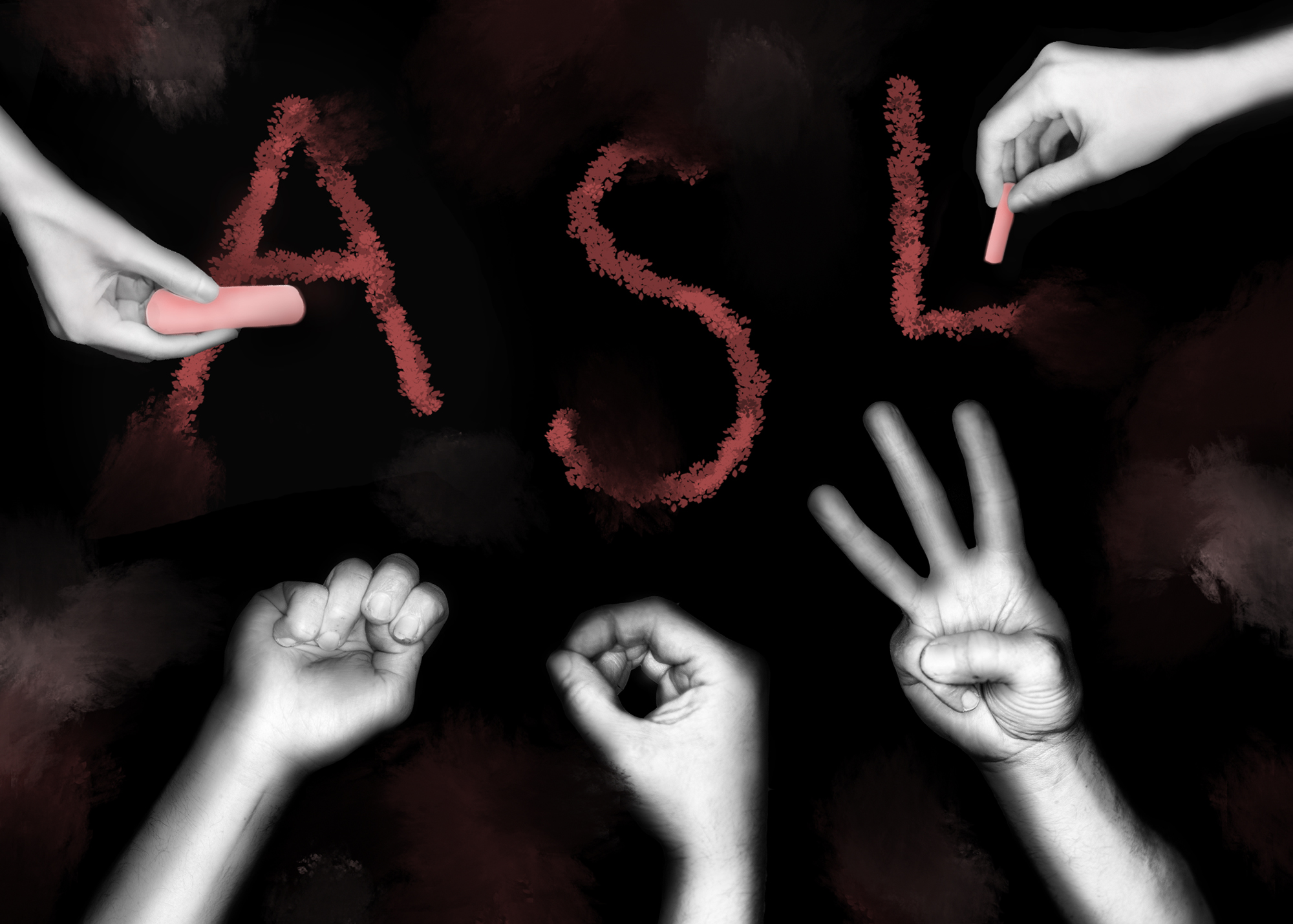When ASL NOW launched their online petition for an American Sign Language major at the University of Maryland, the student-run organization’s co-chairs hoped to reach 200 signatures within a few weeks.
They miscalculated.
By the next morning, 100 people had signed the petition. And as of Sunday afternoon, that number is over 500.
“It’s surprising, but also reassuring that this is relevant, and it is important, and it is worth putting time and effort into,” said Natalie Bartholet, a sophomore music education major who helped create the petition.
ASL NOW, the student-run organization behind the effort, had formed only a few days before launching the petition on Dec. 28. Three students — Zoe Singleton, Christen Holmes, Devon Rafanelli — came to the University of Maryland wanting to expand on their sign language skills, and were dismayed by a limited number of classes and long waitlists.
But they were also surprised. The university sits just over eight miles away from Washington, D.C., a city with one of the largest populations of deaf and hard of hearing people in the United States, according to their petition. Gallaudet University, the world’s only liberal arts college specifically for deaf students, is also located in the city.
[Read more: Board of Regents OKs new major at UMD focused on virtual reality design]
“It’s another language,” said Rafanelli, a freshman music education and percussion major, of ASL. “People don’t really see it as that, so I think that it’s important we have it here.”
This semester, the university offers two sections of EDSP376 — a beginner’s class on sign language — and one section of EDSP476, an intermediate class. Both sections of the intro class have over 30 students on the waitlist, more than the number of seats in each section.
For Singleton, a lack of ASL education also called into question accessibility services for deaf or hard of hearing students at and around this university.
“That’s the goal — trying to have UMD value accessibility, and by way of that, make people more aware to fight for it in the real world afterwards,” said the sophomore classical humanities major.
Michael Dunham, one of the two professors at this university who teaches sign language, was among the first faculty members contacted by the co-chairs following the petition’s success. Dunham, who graduated from Gallaudet University in 2007, threw his support behind the project.
“A lot of deaf people work, and live, and commute within these areas,” Dunham, who is deaf, said through a sign language interpreter. “It’s nice to have a community in and of itself.”
An ASL major would attract prospective teachers or interpreters, but it could also be valuable for students who want to learn more about the language no matter their career, said the co-chairs. Although still in the early planning stages, they believe the major should take a holistic approach to sign language. This means teaching students fluency in ASL, but also figuring deaf culture and community into the curriculum, similar to the structure of traditional language majors.
They propose the major belong to the arts and humanities college, where other language programs reside. The university’s existing ASL classes are housed within the education college’s special education department.
[Read more: Student housing affordability in College Park isn’t likely to improve soon, officials say]
“It should just be treated like any other language,” said Holmes, a sophomore music composition major. “I feel like we put it in this separate box just because it’s not spoken, but it should just have the same curriculum as any other languages.”
Several other colleges around the U.S. offer similar majors. Towson University established its Deaf Studies major in 2000, and has since awarded over 300 degrees. California State University, Northridge has a department dedicated to a Deaf Studies major, which includes an interpreter education program.
The group’s recent outreach to university officials has been met with support, Singleton said.
“The response that we’ve gotten from faculty so far has been really positive,” she said. “They’ve been really eager to meet up with us.”
The group acknowledges that creating a sign language major could take years, but in the meantime, an outpouring of support on social media “goes to show how important this is,” Bartholet said.
“I had a friend from a college in New York message me and say ‘This is really awesome, this is really important, and I’m going to share this on my Facebook page,’” Bartholet said. “That was really awesome.”
Within the coming weeks, ASL NOW’s co-chairs will meet with faculty in the special education department and the arts and humanities to discuss the next steps in bringing the major to reality.
“We found this quote on the arts and humanities website, basically just saying, ‘Our motto is diversity,’ and just kind of not including this community of people, such a large community of people, is a problem,” Holmes said.



